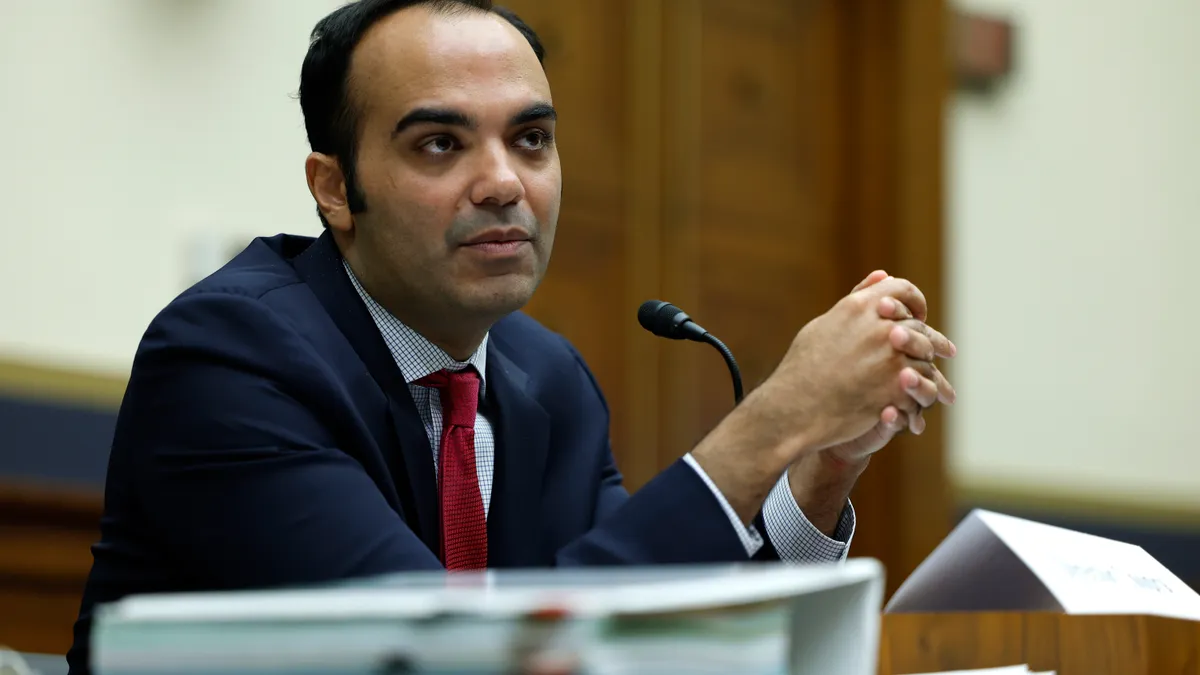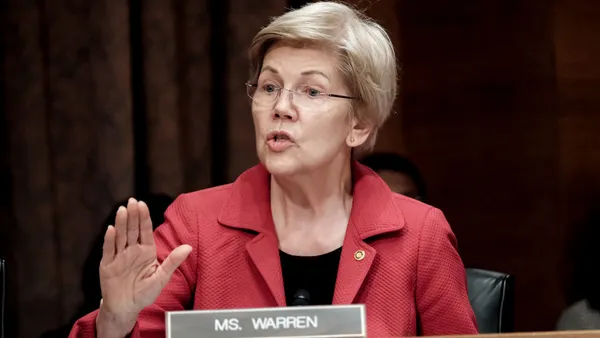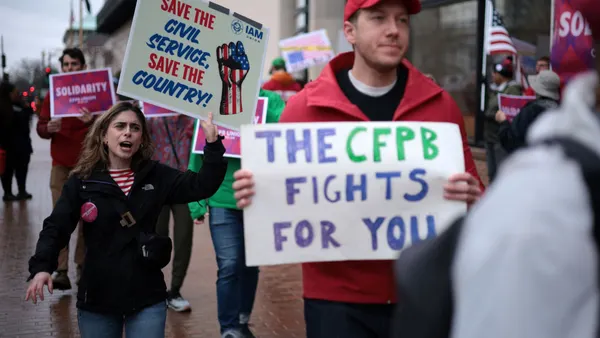The Consumer Financial Protection Bureau issued a policy statement Monday updating what constitutes “abusive” acts or practices under the Dodd-Frank Act.
The detailed policy statement does not bring forth any new legal requirements but provides background and an analytical framework that would help federal and state agencies identify firms when they violate the law, CFPB Director Rohit Chopra said in a statement.
“[I]t’s important that we not lose sight of the fact that the law reflects our values,” Chopra said Monday at a virtual event at the University of California Irvine.
“Congress made an important judgment about the types of conduct that should not be allowed to fester, and it is incumbent upon the CFPB, federal agencies and the states to ensure that our markets reward fair dealing, rather than abuse,” he said.
The policy statement explains how companies exploit people by obscuring important features of a product or service. They leverage a consumer’s understanding of the product terms or a lack of understanding of the material risks and associated costs, Chopra said.
“While trickery and manipulation can often run into the prohibitions on unfair or deceptive practices, an abusive practice will be situated in the context of the transaction,” Chopra said.
Interference with understanding can be both physical and digital, according to the policy statement.
While physical interference can include any physical conduct that obstructs consumers’ understanding of the terms and conditions, digital interference impedes their ability to understand in a virtual format, the CFPB said.
These virtual impediments include “the use of pop-up or drop-down boxes, multiple click-throughs, or other actions or ‘dark patterns’ that have the effect of making the terms and conditions materially less accessible or salient,” the bureau said.
“Dark patterns are design tricks and other psychological tactics to confuse and manipulate people into making choices they otherwise would not have made,” Chopra said. “Manipulating people is wrong, whether on paper or pixels.”
The Dodd-Frank Act gave the CFPB power to penalize any financial firm found violating the long-established federal prohibition of “unfair or deceptive acts or practices” and introduced the “abusive” standard under Unfair, Deceptive, or Abusive Acts or Practices.
The CFPB has brought 43 cases alleging abusive conduct since the Consumer Financial Protection Act was passed in 2010.
The Trump administration updated the definition of “abusive” in 2020, but it was revoked a year later, according to American Banker. At the time, former CFPB Director Kathy Kraninger said the bureau did not have to issue a notice of proposed rulemaking to define the abusive standard. Under Kraninger, the CFPB sought monetary compensation for abusive acts or practices from companies that lacked “a good-faith effort to comply with the law.” This drew criticism from consumer advocates.
But under Chopra, the CFPB has provided background and analysis of the CFPA’s definition of abusive conduct and their objectives in proposing the policy statement.
“There’s been a great deal of ink spilled about the failure of federal financial regulators and enforcers to halt the widespread abuses that contributed to a devastating financial crisis nearly fifteen years ago,” Chopra said. “Not only did these regulatory failures harm individuals, families and neighborhoods. It also hurt every business that engaged in fair and transparent dealing with prospective customers.”
The policy statement will be published in the Federal Register, and the public can submit their comments until July 3.












